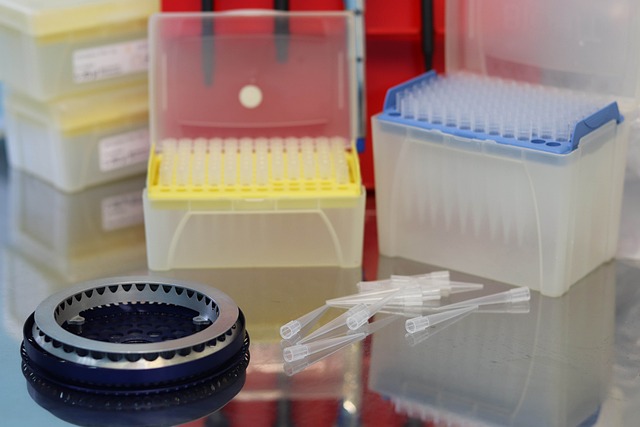The UK General Health Blood Test assesses cardiovascular health by measuring 'bad' (LDL) and 'good' (HDL) cholesterol levels, along with total cholesterol. High LDL cholesterol can lead to artery plaque buildup, increasing the risk of heart disease and stroke. Regular testing (annually for adults over 40 in the UK) helps healthcare professionals recommend lifestyle changes or medications for effective cholesterol management, thereby reducing cardiovascular events.
Cholesterol is a vital component of our body’s functions, but elevated levels can lead to serious health issues. Understanding cholesterol levels is crucial for maintaining overall well-being. This article delves into the significance of cholesterol testing through the UK General Health Blood Test, explaining its role in assessing heart health risks. We’ll guide you through interpreting results and offer insights on maintaining optimal cholesterol levels for a healthier life.
- Understanding Cholesterol Levels: What Do They Indicate?
- The UK General Health Blood Test for Cholesterol: How It Works
- Interpretating Results and Maintaining Healthy Cholesterol Levels
Understanding Cholesterol Levels: What Do They Indicate?
Cholesterol levels are a crucial indicator of cardiovascular health, and understanding these numbers is essential for maintaining overall well-being. A UK General Health Blood Test provides valuable insights into your cholesterol profile, revealing whether your levels are optimal or require attention. Cholesterol itself is a waxy substance that’s found in all cells in the body and plays a vital role in various bodily functions. However, high levels of low-density lipoprotein (LDL) cholesterol, often referred to as ‘bad’ cholesterol, can lead to plaque buildup in the arteries, increasing the risk of heart disease and stroke. In contrast, high-density lipoprotein (HDL) cholesterol, known as ‘good’ cholesterol, helps remove LDL cholesterol from the bloodstream, acting as a protective mechanism for cardiovascular health.
By interpreting the results of your blood test, healthcare professionals can assess your risk factors and make recommendations to manage your cholesterol levels effectively. This may include lifestyle changes such as adopting a healthier diet, increasing physical activity, or in some cases, prescription medications to help control cholesterol. Regular monitoring through UK General Health Blood Tests is a proactive step towards maintaining a healthy heart and reducing the likelihood of cardiovascular events.
The UK General Health Blood Test for Cholesterol: How It Works
The UK General Health Blood Test for Cholesterol is a routine check that assesses your cardiovascular health by measuring cholesterol levels in your blood. This test typically includes measurements of LDL (low-density lipoprotein) or ‘bad’ cholesterol, HDL (high-density lipoprotein) or ‘good’ cholesterol, and total cholesterol. It’s recommended as part of a general health screen for adults over 40 years old in the UK, as high cholesterol often has no symptoms but can increase the risk of heart disease and stroke.
The process involves taking a small sample of your blood, usually from your arm, and sending it to a laboratory for analysis. The results provide valuable insights into your cardiovascular health profile. High levels of LDL cholesterol can lead to plaque buildup in arteries, while high HDL levels are protective as they help remove LDL cholesterol from the bloodstream. Understanding these levels is crucial for identifying potential health risks and taking proactive measures to maintain or improve cardiovascular health.
Interpretating Results and Maintaining Healthy Cholesterol Levels
Interpreting your UK General Health Blood Test results is an essential step in managing your cholesterol levels and overall heart health. The test provides valuable insights into the amount of low-density lipoprotein (LDL) or ‘bad’ cholesterol, high-density lipoprotein (HDL) or ‘good’ cholesterol, and total cholesterol present in your blood. A healthy balance between these types is key; high LDL levels can lead to a buildup of cholesterol in the arteries, increasing the risk of heart disease. Conversely, adequate HDL levels help remove excess cholesterol from the bloodstream.
Maintaining healthy cholesterol levels involves a combination of dietary choices, exercise, and sometimes medication. Dietary changes such as reducing saturated fats and trans fats, and increasing fibre intake, can significantly impact cholesterol levels. Regular physical activity, particularly aerobic exercises, has been shown to boost HDL levels and reduce LDL. In some cases, healthcare professionals may recommend statins or other medications to manage cholesterol, especially if lifestyle adjustments alone are not sufficient. Regular UK General Health Blood Tests play a pivotal role in monitoring these levels and guiding any necessary lifestyle modifications or medical interventions.
Cholesterol level testing through the UK General Health Blood Test is a vital step in managing your cardiovascular health. By understanding what these levels indicate and interpreting the results, you can take proactive steps to maintain healthy cholesterol. Regular check-ups and lifestyle adjustments, such as diet and exercise, are key to keeping your cholesterol levels in check and reducing the risk of heart disease. Remember, early detection through this simple blood test can make a significant difference in your long-term health.
